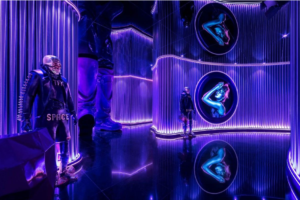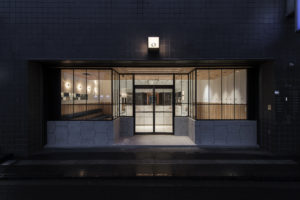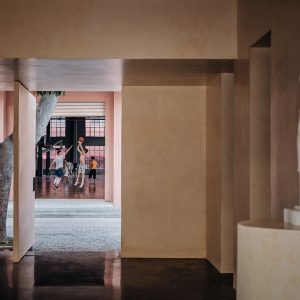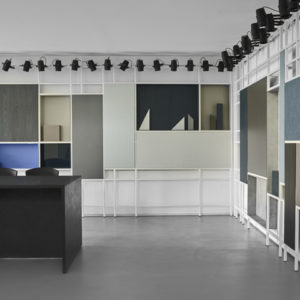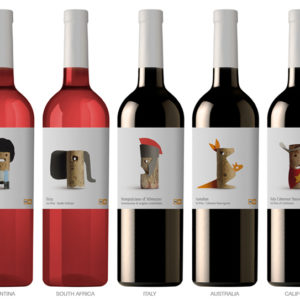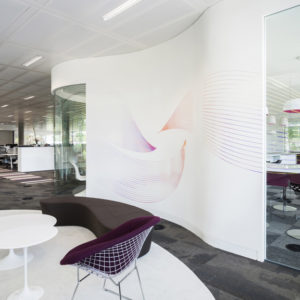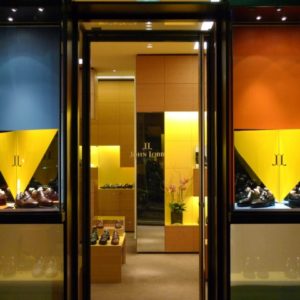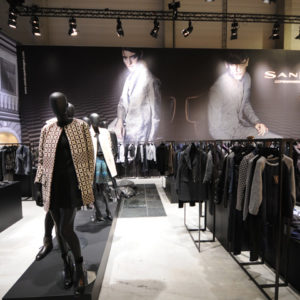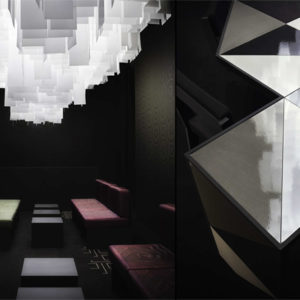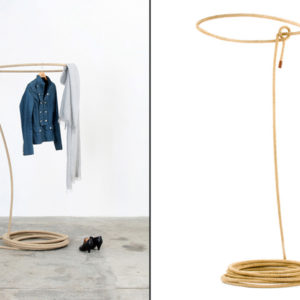
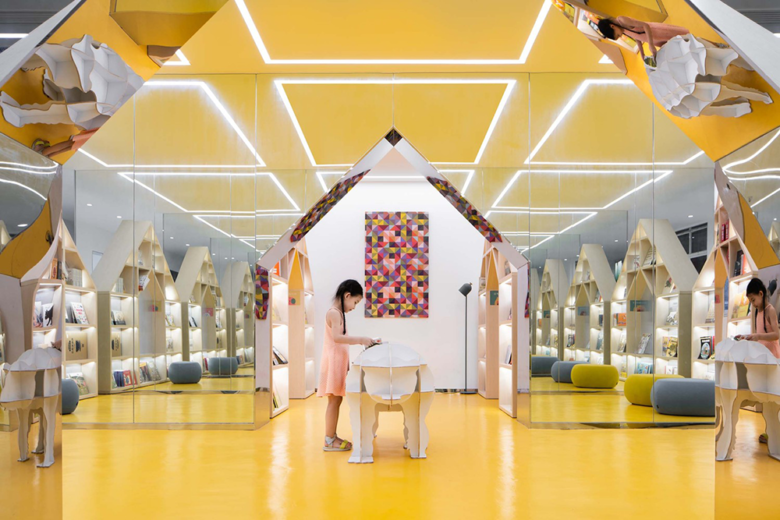
Wutopia Lab is invited by client to renovate a Xinhua Bookstore and its annex room in the historic district of Yangzhou. The bookstore is redesigned as a multi-functional box for bookstore, hostel, exhibition, conference and tea house, which presents a possibility of connection of the past and the future of the city of Yangzhou.
Yangzhou, with a history of 2500 years, used to be the most prosperous city in China. This Xinhua Bookstore in Guoqing Road opened on January 28th, 1949 was the first of its branch in the city. The former of the bookstore was the Jianguo Bookstore during the period of Republic of China and was took over after the liberation. The bookstore is gradually downsized and dilapidated 70 years after its opening so the government of Yangzhou and client are looking for a revival of the bookstore and hope it can bring a positive effect to the city renovation of historic district.
Slow Yangzhou – A Box of Surprises
The site has a main building facing the street and a group of 6 old buildings with an inner courtyard among them. What Wutopia Lab is going to do is an integration of each building and re-brand it as Slow Yangzhou.
First Box: Xinhua Bookstore
1.1 The Weightless Box – A bookstore of screens
Based on the heavy grey color theme in Guoqing Road, Wutopia Lab would like to create an opposite space by using bright white color theme for the bookstore. By borrowing the idea of “Palace of Screens”, bookshelves made of white acrylic are installed as screens, splitting the space like a maze. The translucent acrylic material of the bookshelves creates a visual effect of fog, which provides a sense of floating, weightless experience inside of the bookstore.
1.2 The Jewelry Box – Children’s Area
The second floor of the bookstore is the children’s area, which follows the same arrangement of first floor, but the material for bookshelves is changed to wood while the form comes from the contour of wood cabin. The floor uses bright yellow color and with the wooden bookshelves and mirrored walls it creates a warm and wild space.
1.3 The Mechanic Space – Mobile Reading Room
The lifting platform used to be logistics elevator is turned into a mobile living space, which is hidden behind the mirrored wall. The wall of the platform can also be used for exhibition.
1.4 Black box above the white box
The third floor is a little collection space for limited books. The space is equipped with portable stainless-steel bookshelves and fixed bookshelves. Together with the mirror ceiling and black floor, the space becomes a boundary-less chamber.
1.5 The Nature Box – Garden Above the Cloud
Coming out from the collection area is the roof garden. A garden of bamboo is created with a form of ripple using weather steel panels, responding to its famous reference the Geyuan Garden in Yangzhou. We made it a micro natural space on the roof.
Second Box: 24hr Box
2.1 Living in poems
The two buildings behind the Xinhua Bookstore is turned into a hostel and shared lobby space. The one with two floors is the hostel with 12 bedrooms, which are small boxes within the large hostel space. The hostel is like a box of chocolate and you’ll never which bedroom you’re going to get.
2.2 Under the rainbow of ideas
The building next to the hostel is the shared lobby space for group events. We are asked to not to change the façade, so the roof becomes our focusing point. In order to create a vibrant interior atmosphere, we chose to install colored transparent panels for the skylights.
Third Box: Central Courtyard
The original courtyard is cleaned up and redesigned as the center of the project. We left this space empty on purpose so that the emptiness is used to connect the bookstore, hostel.
The emptiness is also responding to the messiness of the street outside of the courtyard. The ground and walls are covered with grey stone finishing, which is used to distinguish the courtyard and its surrounding buildings. Window openings, gaps on the brick wall and a moon gate bring street views into the courtyard gently that you can standing in the courtyard and experience the peacefulness. A red maple is planted on the center, responding the vast opening of the sky above the courtyard.
Fourth Box: Surprises
4.1 Winding Stream is the clue to real the secret
Curvilineal copper strips are mounted on the ground at the entry of the courtyard, implying the ancient Chinese story of Winding Stream Party.
4.2 The Three Secrets
Following the Winding Stream are the three secret spaces we hide around the courtyard. The first two are little tea houses “Butterfly Flower” and “Peony”, which used to be storage rooms. The third secret is an individual hostel room “Misty March”. The three secret spaces together with the peacefulness in the winding courtyard fulfilled a sense of exquisiteness and delicacy here in the Slow Yangzhou.
Slow Yangzhou is the treasure of the city of Yangzhou
Slow Yangzhou is a small layered box, staying within it and you are able to find all those secret spaces hidden in the old city, which we think is truly the box of treasure in Yangzhou, waiting to be discovered.
Architects: Wutopia Lab
Architect in Charge: Ting Yu
Project Architect: He Huang
Lighting Consultant: Chenlu Zhang
Photographs: CreatAR Images
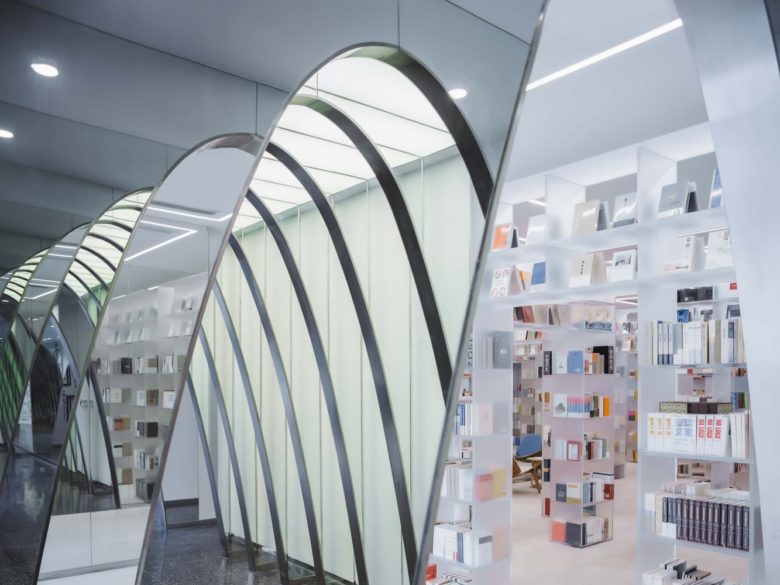
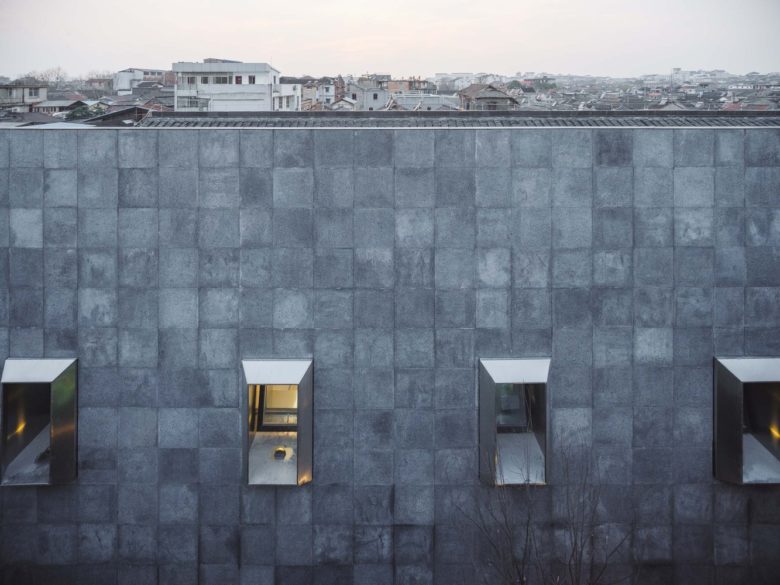
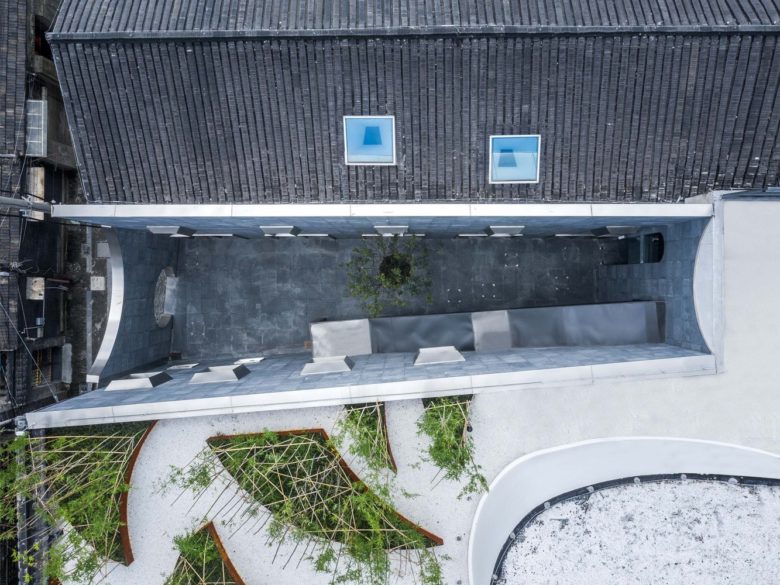
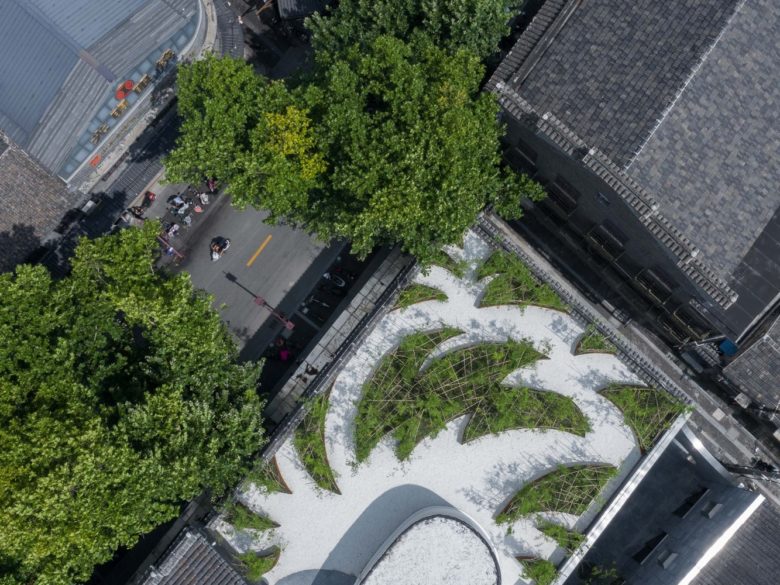
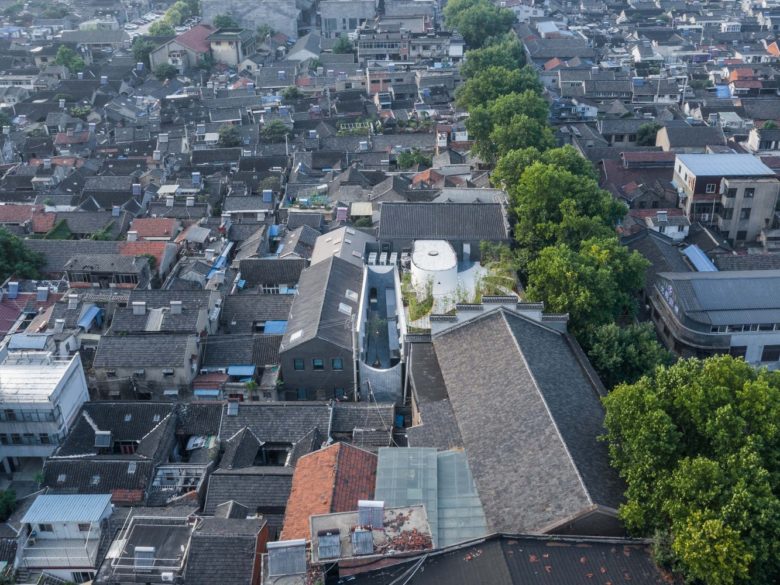
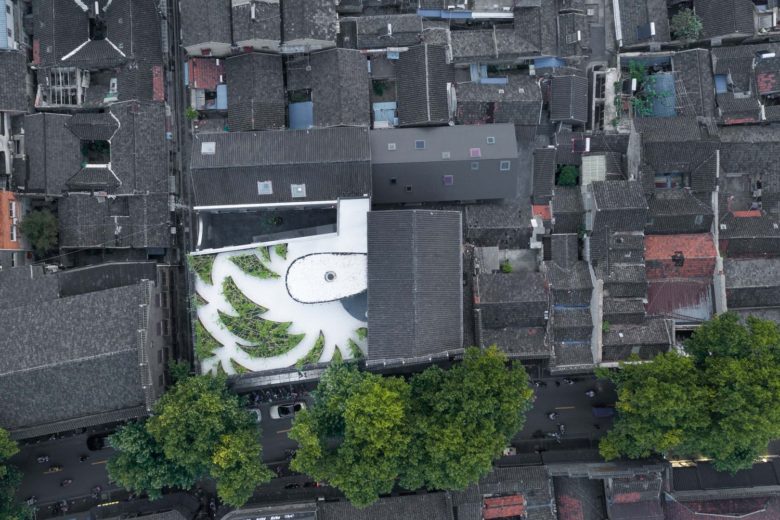
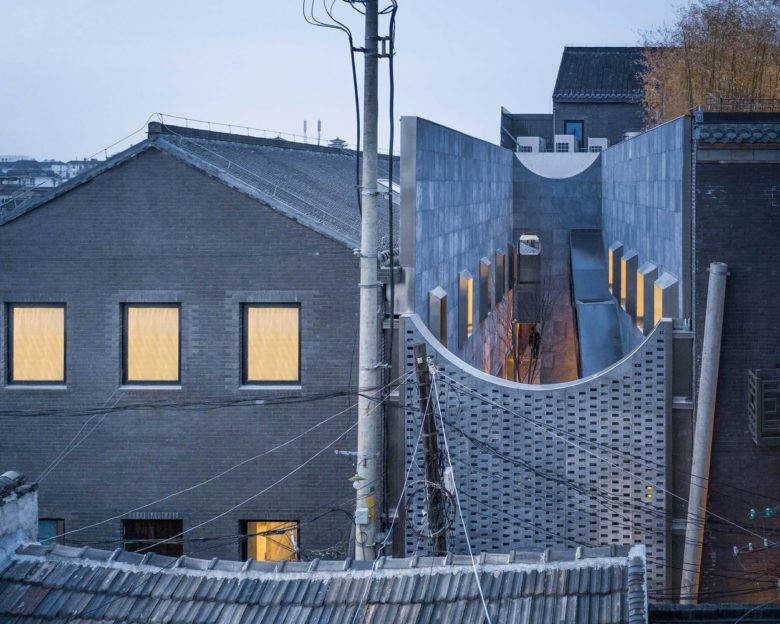
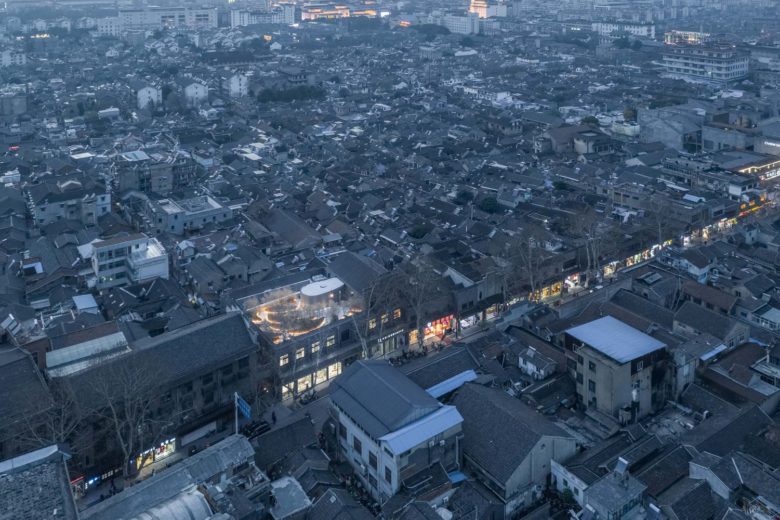
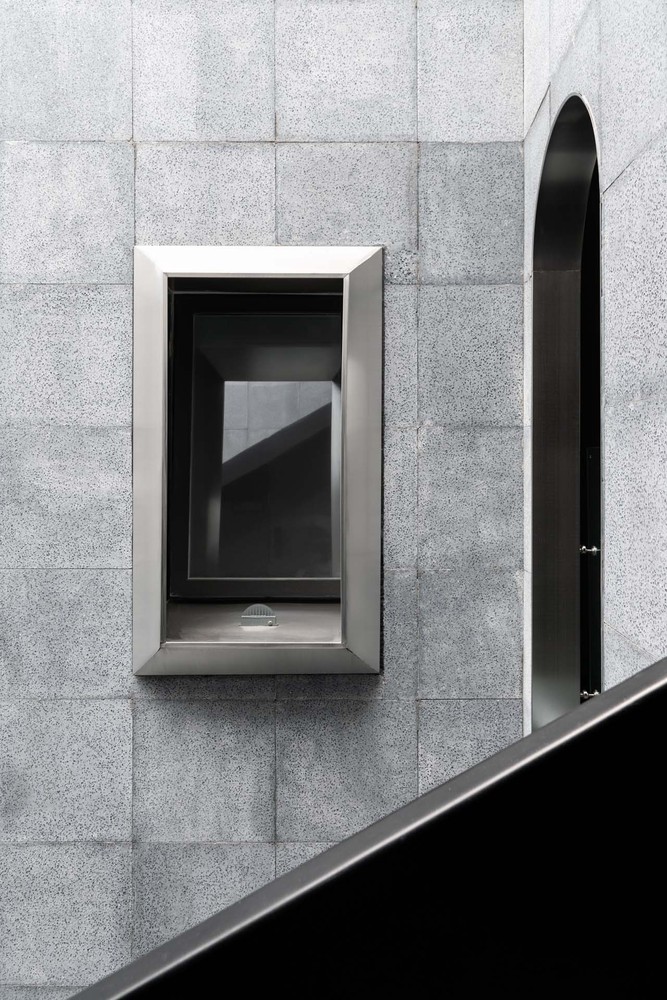
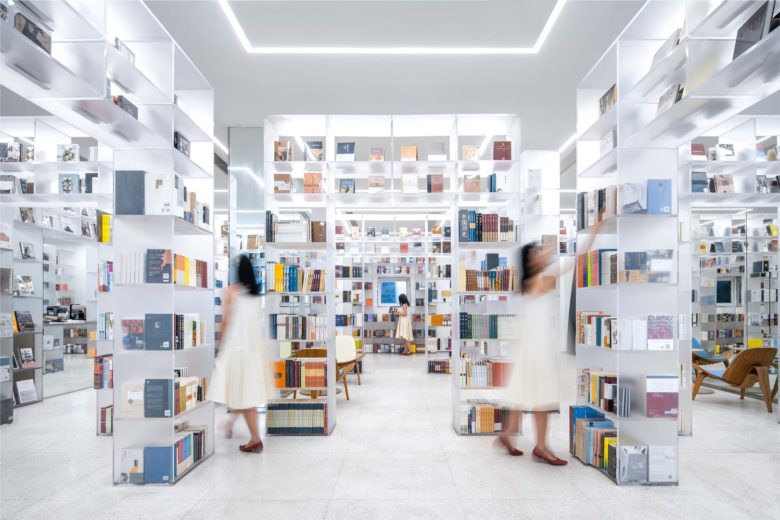
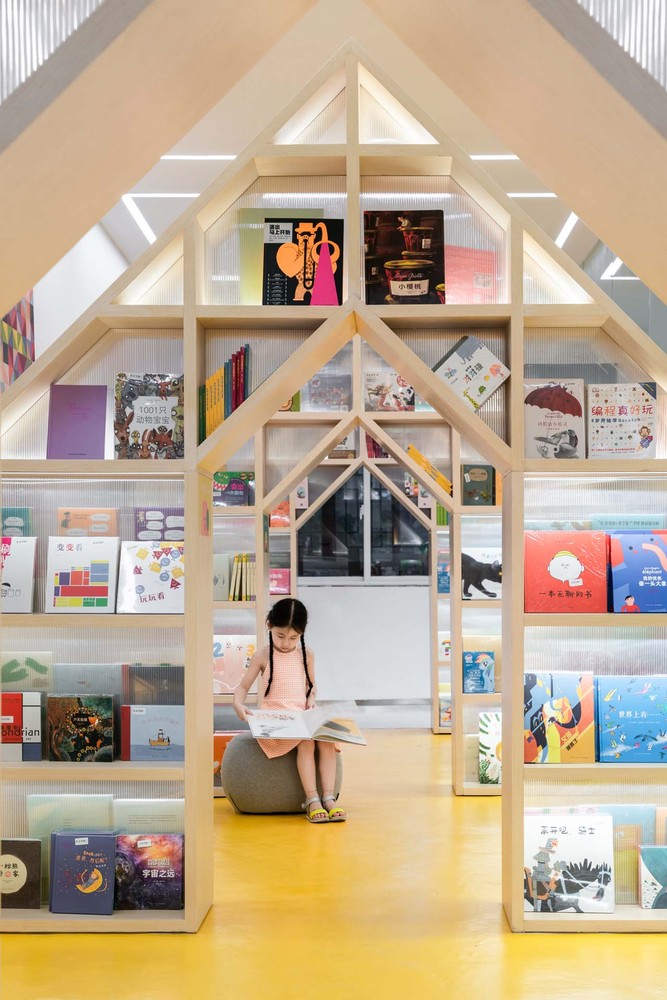
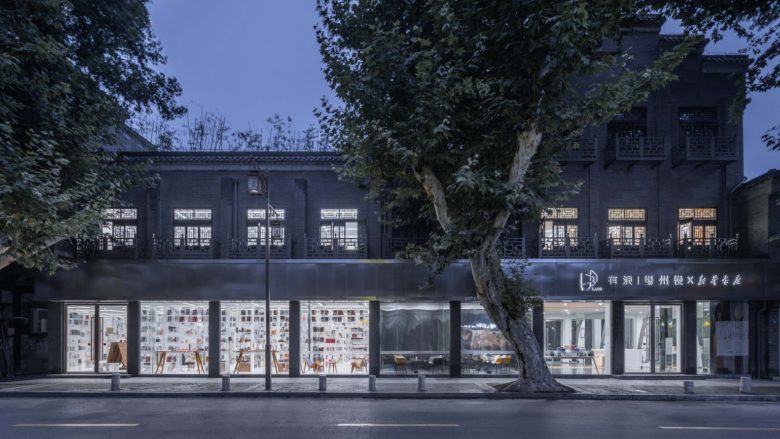
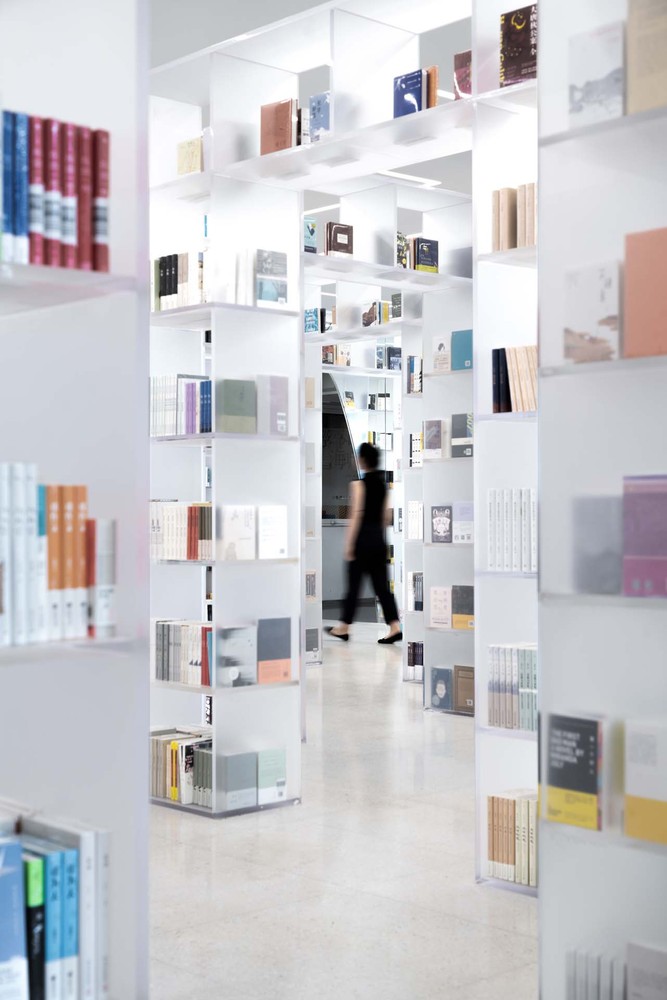
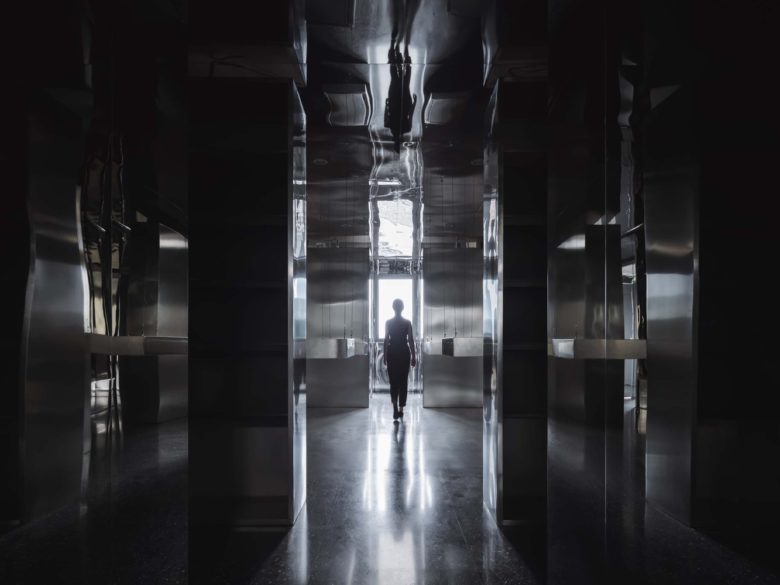
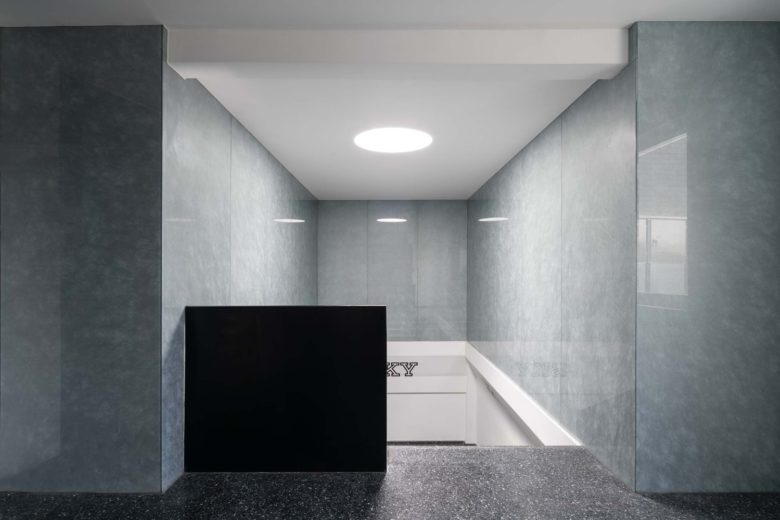
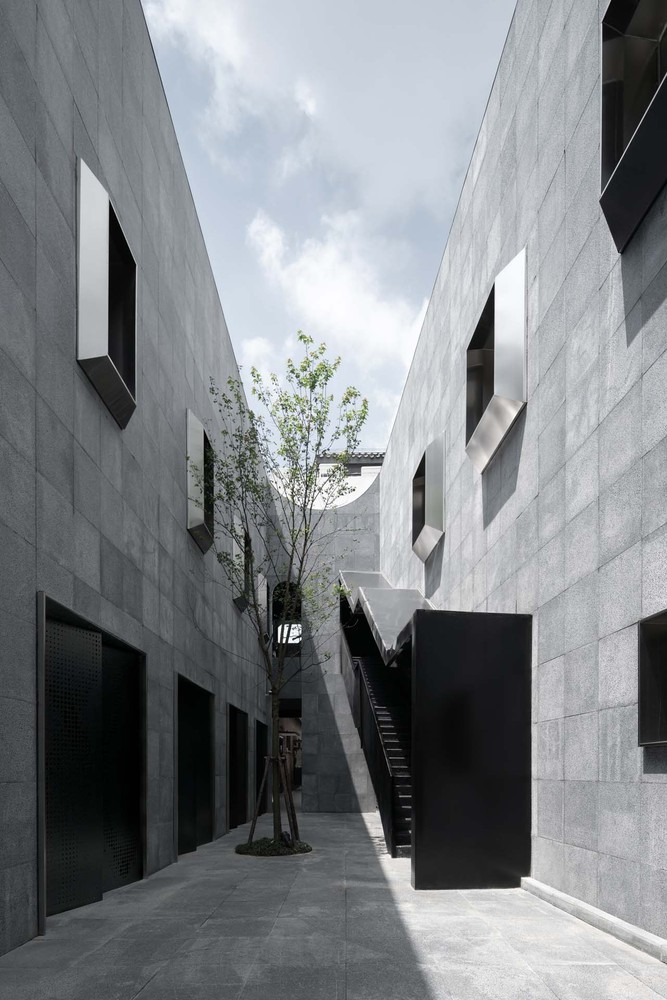
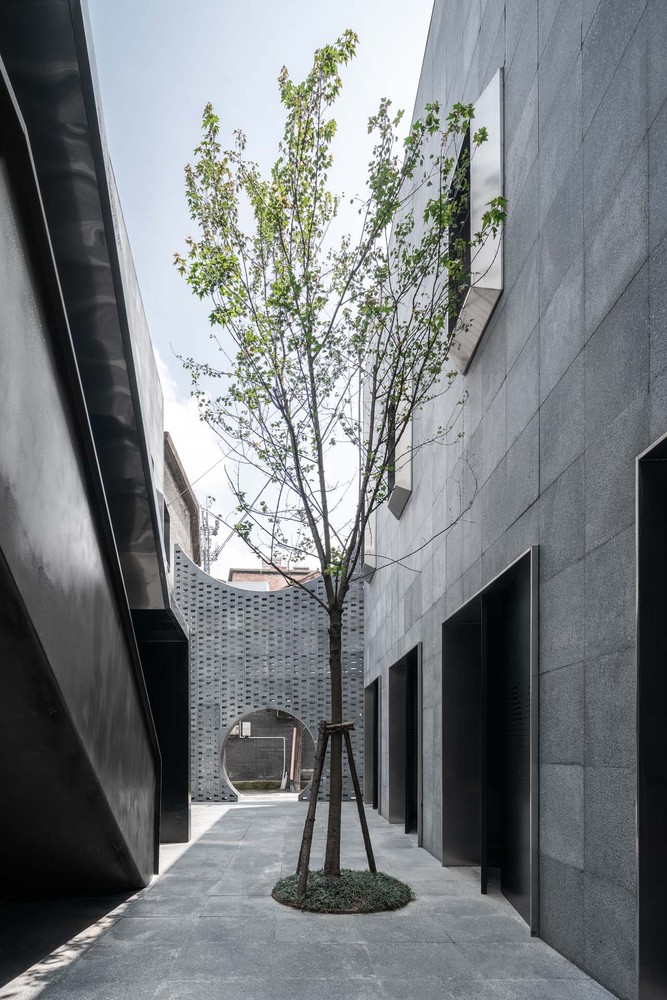
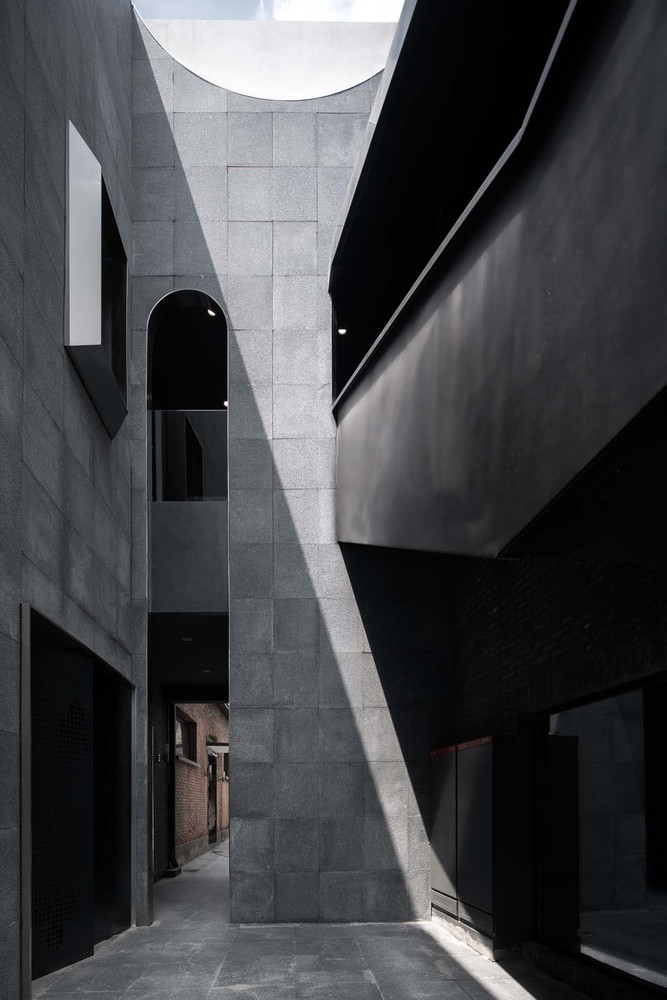
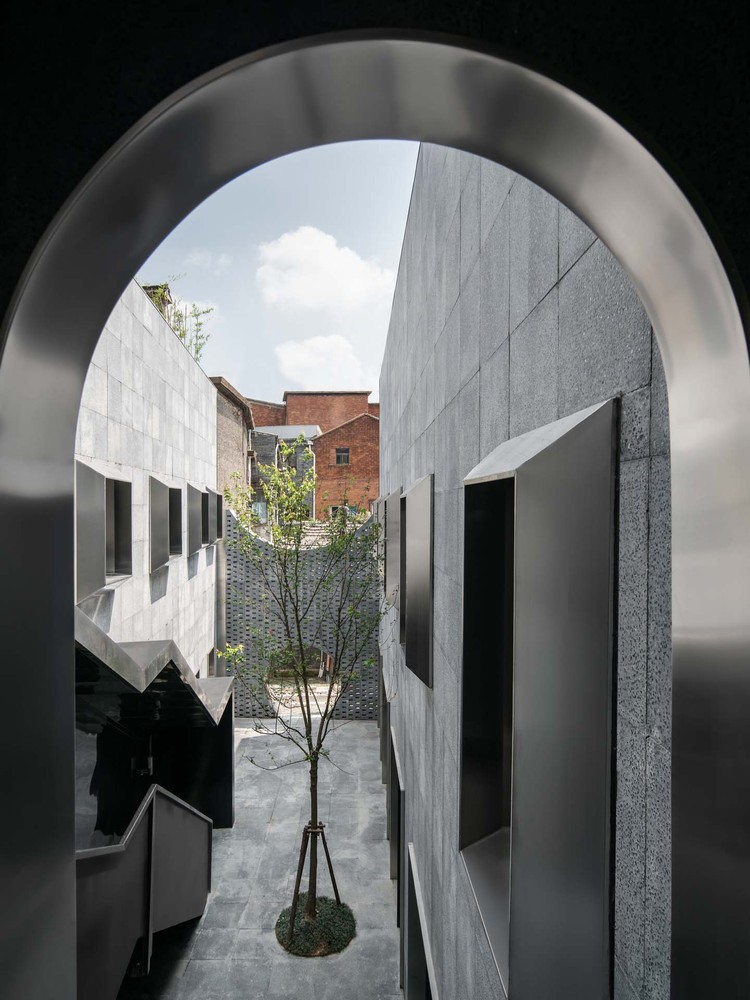
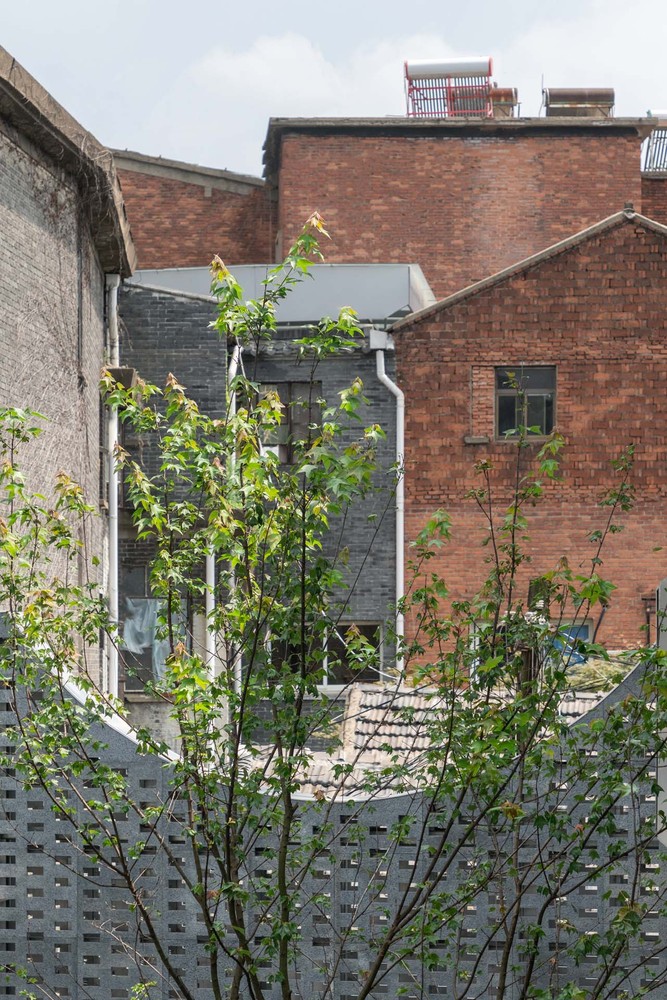
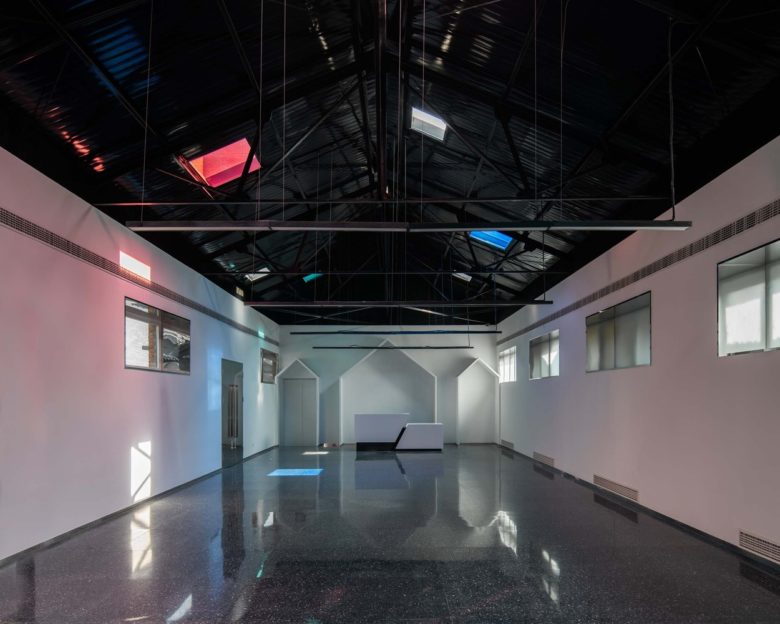
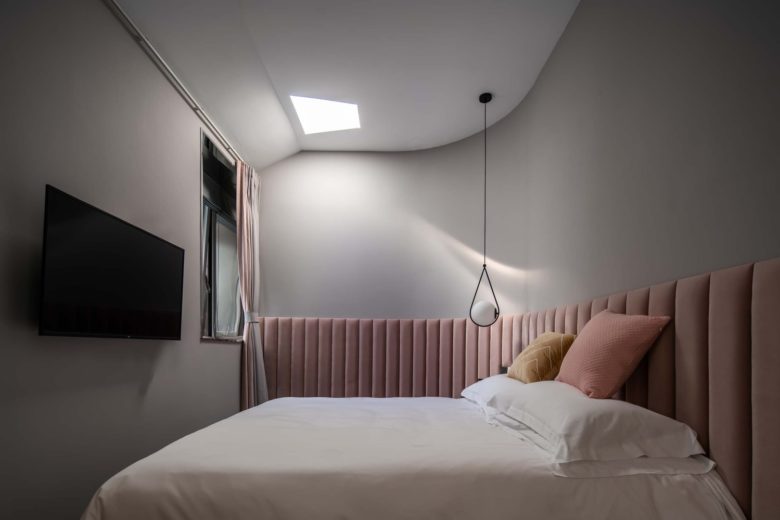
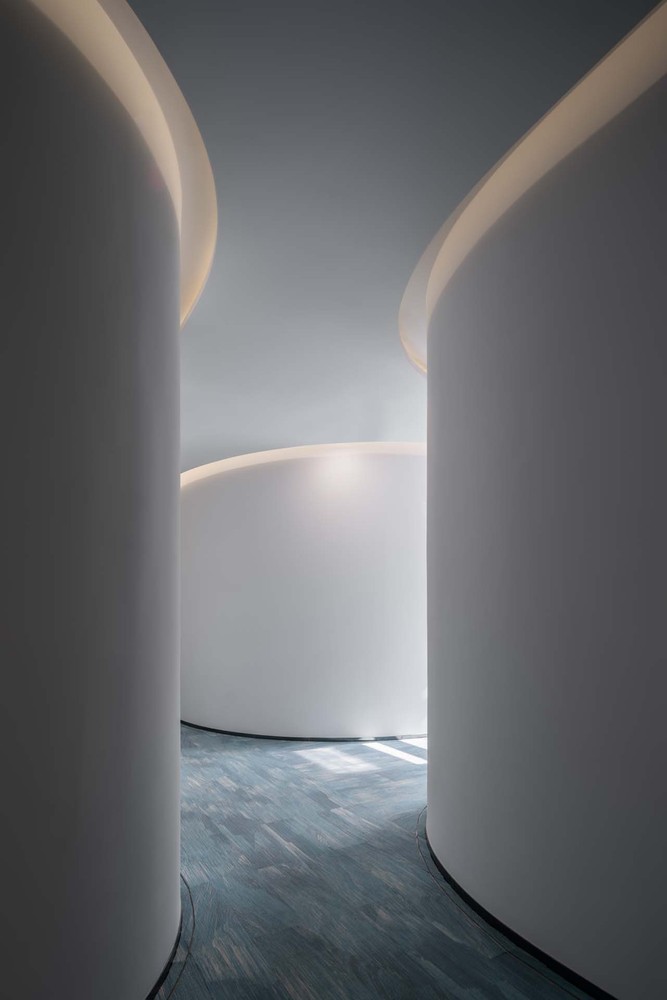
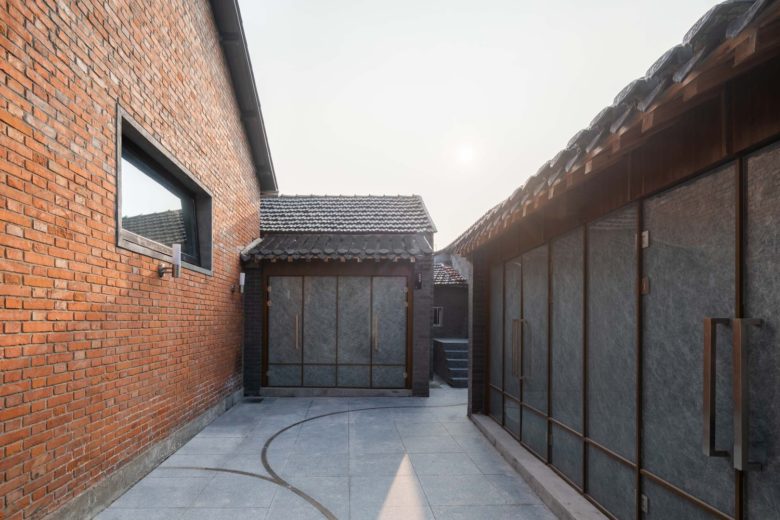
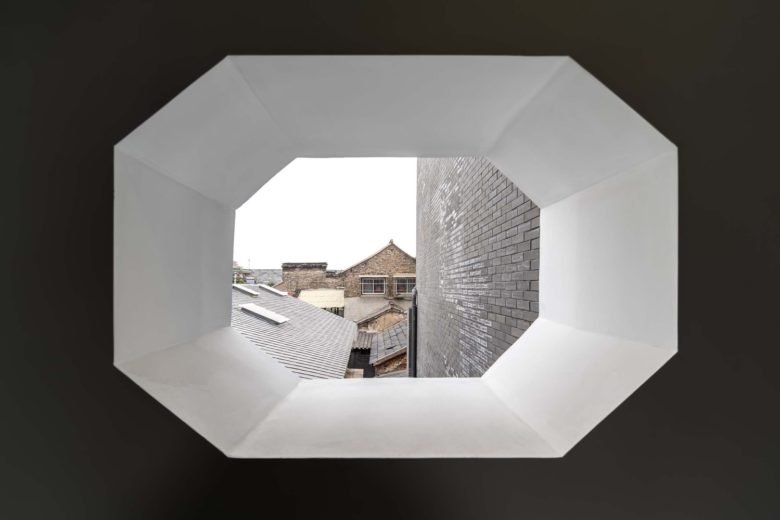
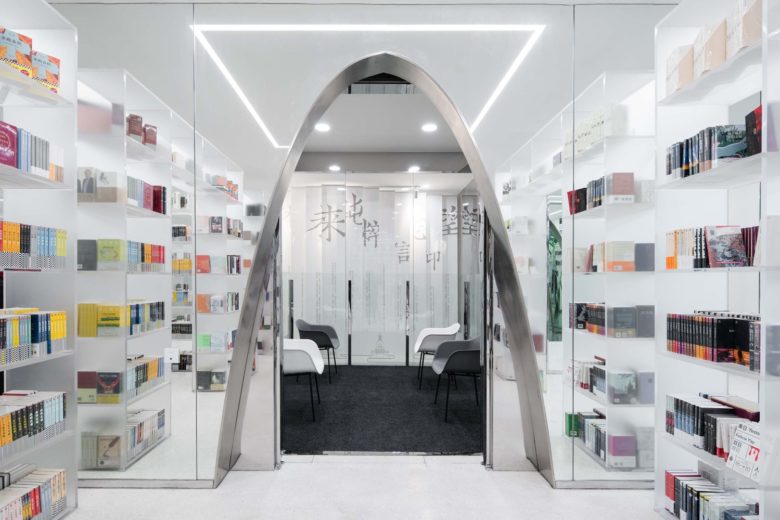
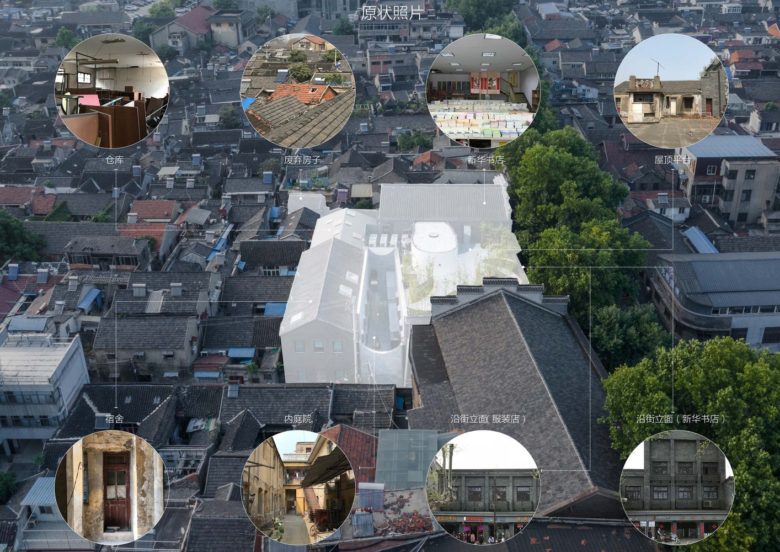
Add to collection
